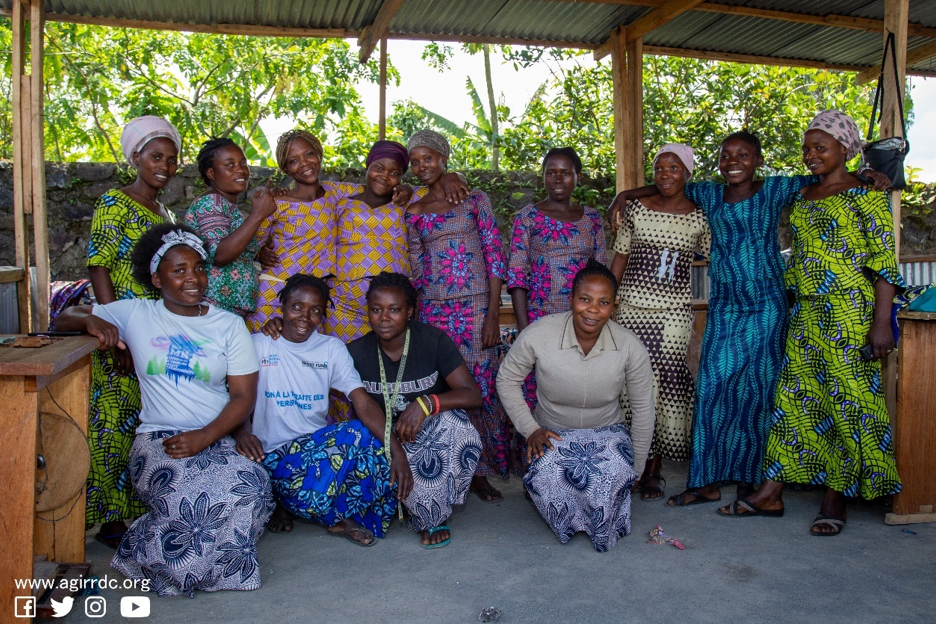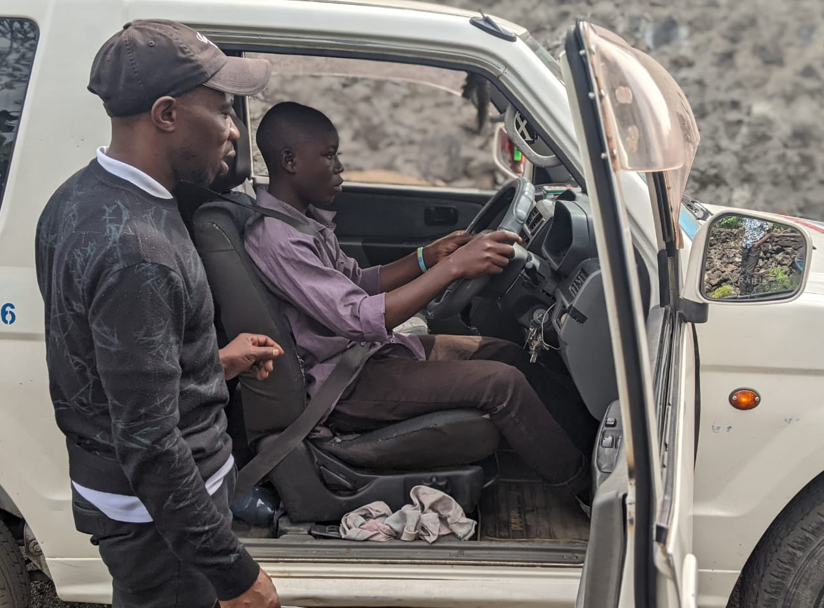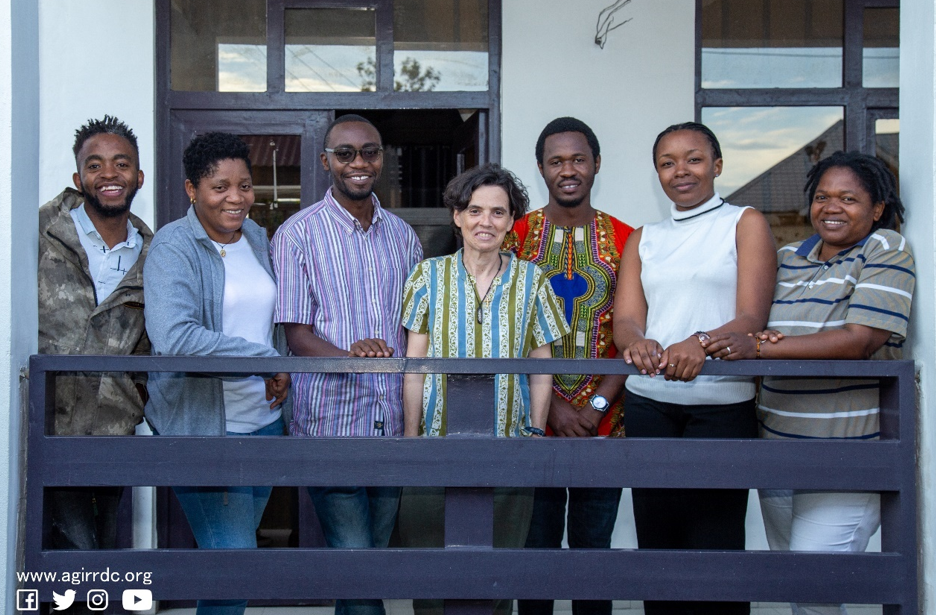
ACT for Congo gets several kinds of reports from AGIR every month. These include their program activities, photos, stories and financials. This is an example of an activity report for the month of April 2023. Please check their website for more details.
AGIR RDC April, 2023 Monthly Report
Context
The insecurity in North Kivu province has still not improved due to the violent fighting and advance of M23 rebel troops in several villages and localities in North Kivu province, despite the presence of the regional EAC force. Camps for displaced persons continue to grow on the outskirts of the city of Goma and some surrounding cities. In several villages and peripheral localities of the city of Goma, there is an outbreak of self-defense groups, mainly made up of young people and children, which undoubtedly make the laws in the entities where they have settled, thus making their lives and those of the unarmed population unfortunately insecure in some villages. They coexist with the loyalist force of the FARDC and are commonly called BAZALENDU literally meaning Nationalists.
The city of Goma is experiencing more and more growth in crime, most committed during the night by thieves who take advantage of the insecurity to rob houses and kill without any mercy or rules. From the economic point of view, the price of food and other staples continue to increase due to lack of insecurity. Agricultural production has dropped considerably, but also the roads are too dangerous and sometimes impassable to facilitate trade, thus causing economic asphyxiation in the city of Goma. It affects other provinces that depend on the economy of the province of North Kivu. Since February 24, 2023, there has been a depreciation of the Congolese franc against the US dollar, dated February 9 the government announced the publication of the exchange rate and now 1 US $ is trading at 2,308 Congolese francs. As of April 08, 2023, the Minister of Economy has promised a decrease in the exchange rate except that this does not seem to be realistic with the low rate of production and the occupation of several territories by rebels.
From the political point of view, April was characterized by the end of voter registration in some provinces, North Kivu being one of them, although this was not complete because some people did not access it. Several parts of the province are under rebel control.
AGIR RDC continued to intervene through an emergency project focused on community mobilization and psychological care in the Bulengo camp, and we also continued to carry out other activities related to permanent projects. For our communication and media department, we made sure to report and document all activities related to the emergency project and other projects in progress, we were several times in the field to ensure media coverage of all the organization's activities.
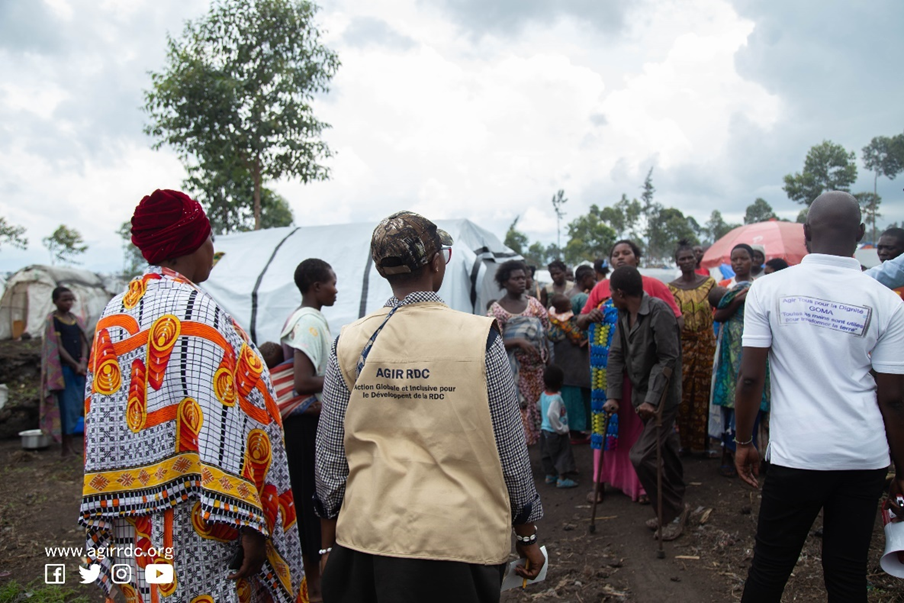
Emergency Project "Tusiwa Achiliye Bulengo I"
“Tusiwa Achiliye Bulengo I” means “We Won’t Forget Them in Bulengo I.”
From the last week in January to the fifteenth of April we conducted an emergency project in Bulengo, a response to the situation of people displaced by war between M23 supported by Rwanda and the FARDC, army of the DRC. We responded through community outreach, mental health, nutrition and other holistic actions.
Community mobilization
We raised awareness on several themes such as hygiene and consent to prevent various diseases; we focused on the fight against Gender Based Violence (GBV) to give women the same opportunity as men in the management and exercise of power in the camp. we raised awareness about family planning to avoid unwanted pregnancies in the camp and we took the opportunity to talk about the prevention of STDs. We held public sessions about living together to cultivate peaceful coexistence and the culture of peace in the camp. Thus, at the end of this project, on behalf of the mobilization, we have as indicators: -
23 hygiene committees constituted according to one committee per block. In Bulengo IDP Camp (in the photo above), two community animators raising awareness about GBV.
23 blocks (1380 households given that a block has 60 households), had committees to organize hygiene around the public toilets.
23 hygiene kits consisting of brooms, seals, cans and gloves were granted to 23 blocks.
30 blocks had public information sessions by megaphone, including 1,500 households.
48 focus groups reached about 960 people who joined work parties to clean public toilets and showers organized by the hygiene committees.
1800 households were contacted about peaceful cohabitation in public sessions, where they discussed and accepted the principles of living together such as dialogue, sharing and tolerance.
18 focus groups on peaceful cohabitation were made and affected about 330 people.
4 mediations were made for people who disagreed.
28 blocks educated about how to protect against cholera.
49 households contacted on the use of children's potties.
7 referrals of cholera cases and 5 calls from the disinfection team to disinfect households that sheltered people with the cholera pandemic.
300 people gathered in small groups for discussions about gender equality, complementarity in household chores.
9 blocks instructed on messages of gender equality, complementarity.
A total of 280 children participating in children's games and educated about the prevention of cholera, hand washing and body washing.
160 women were able to benefit from the Dignity Kit for menstrual care.
Bulengo, 06 April 2023: Facilitator and volunteer of AGIR DRC, bringing food rations to a displaced woman who has just given birth.
Mrs. Césarine, AGIR RDC Psychosocial Assistant, during a listening session.
Mental health
Through listening, mediation, home visits and clinical follow-up, we accompanied those displaced by war in the Bulengo camp, we focused on the most vulnerable groups such as pregnant or breastfeeding women, children, those separated from their families, women victims of sexual violence and the elderly. On behalf of mental health:
173 displaced persons were listened to and engaged in a process of psychological care according to their various problems. Among these beneficiaries, 20 cases of severe trauma following rape during the flight and within the camp for some survivors,
150 home visits were made,
23 referrals made to structures such as MSF, PREMIÈRE URGENCE, HANDICAP INTERNATIONAL. Among these, about twenty cases of rape were referred for medical care.
Follow up with a sixty-year-old woman suffering from two mandibular fracture features who underwent orthopedic surgery on April 11.
Other actions: protection
30 children have been reunited with their families.
We constructed shelters for some of our beneficiaries.
We provided food rations by distributing porridge flour, sugar and milk to breastfeeding women and other needy people.
Referred the sick and women who were victims of sexual violence. Also referred isolated medical care unavailable in the camp clinic.
Since the launch of the project, we have erected a listening house in the Bulengo camp to facilitate the psychological care of the displaced. After the end of the emergency project, we found that several people still needed psychological care but also several people we have followed since the launch were at risk of relapse. We continued with the activities of the Psychology follow-up.
More than 223 people have already benefited from psychological listening in this listening house and continue to respond to the various appointments of psychosocial workers. We are considering the creation of support groups, because of the demand at the listening house.
Note from ACT for Congo:
Living in a refugee/displaced people’s camp means spending many hours standing in lines. For food. For water. For the few toilets and even fewer showers.
People who come to live in displaced people’s camps come from a variety of living situations: many lived in villages and had to walk to the nearest stream for water. Hardly any have ever had running water, used faucets or taps. Coming to live in a place where water is trucked in and put into tanks with taps is a new situation, and people need to learn to use water carefully. It’s also expensive and rare, so if the water is provided by an NGO, it’s a temporary situation.
Why teach hygiene? Most Congolese in the Goma area buy water, which comes from Lake Kivu. Water is expensive and used carefully. So the reason behind using water for hygiene—personal body and clothing, and eating/cooking—is a public health issue. Cholera is endemic in the area around Goma.
Prevention of disease is linked to information about it. That’s why public awareness is practiced by AGIR RDC in a variety of ways: public sessions that use drama, song and action to bring out ideas and information, and help people discuss them. Focus groups are a smaller way to do so. AGIR’s teams of Community activists work specifically to hold these conversations and help people understand the importance of hygiene for everyone. They’ve been doing so in Goma for years, and for the people in IDP camps for the past two years.
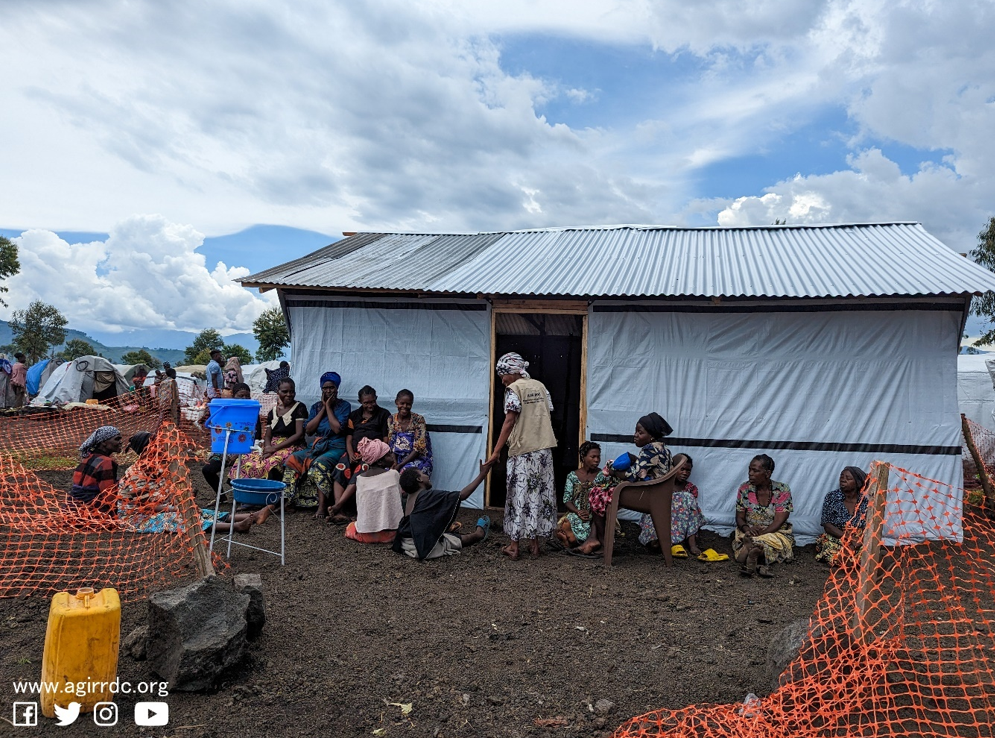
UFEDOC — Rights for Women Domestic Workers
As part of this project, several activities were carried out, including community mobilization, training and other activities such as finalizing contracts with State organizations.
Community mobilization: Our community mobilizers continue going door to door about the rights and responsibility of the employer and the domestic worker. We conducted an online campaign with the aim of raising awareness on the rights of domestic workers and to recognize and protect them like any other worker. On the indicators side, we can include these: -
7 awareness sessions in households in the Kyeshero, Kationdo and Himbi districts,
2 awareness-raising sessions in the Matunda and Sabyinyo enrolment centres,
23 domestic workers including 17 women and 6 men as well as 133 employers including 94 women, 39 men, 3 girls and 6 boys,
23 new domestic workers were identified in the Himbi, Kyeshero and Le Volcan neighborhoods,
4 community facilitators and 9 leaders of UFEDOC associations trained on labour legislation for dissemination in domestic workers' groups.
Training in labor law: Two trainings on labour rights and the ratification of ILO Convention 189 were organized for domestic workers but also for leaders of domestic workers' associations and placement associations, all with the aim of materializing a union.
Other activities in Goma:
(Below left): On 05 April 20203, AGIR DRC held an evaluation with UFEDOC, who leads FTDD — in English, The Fight for Rights Without Violence for Domestic Workers. They looked at activities carried out during the past six months to be able to adjust the planning of the next six.
(Below right): On 27 April 2023, AGIR DRC facilitated a session between leaders of domestic workers’ associations, domestic placement associations, and domestic workers about the last 10 months in the framework of the FTDD project.
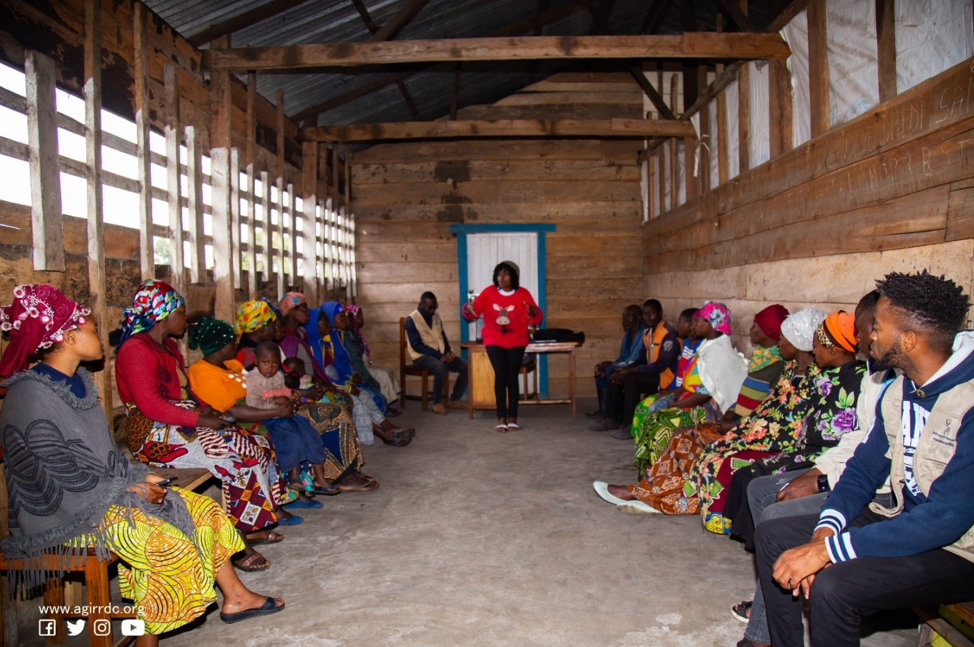
TwaWeza Shinda II
TwaWeza Shinda means “We Will Succeed Again.”
Launched in September, ’22, the TwaWeza Shinda II project ended in the first half of April 2023. In the last half of April 2023, we focused on evaluation of more than 46 literacy learners, the final Tailoring sessions and the beginning of practical sessions in Driving and Masonry Training.
The “Speaking” groups (therapy groups) of the TwaWeza Shinda II project are progressing well, in Beni, Mujoga, Buhene and Mugunga, for this month of April 2023 focused on savings and credit:
We have strengthened their social funds to the tune of 4,400,000 Congolese francs (USD $1923.93), to increase the capacity of each group to grant credits because the social fund was not up to the demand of the members of the various groups in terms of granting credits. Thus, 181 people will be able to directly benefit from these funds through a system of revolving credits.
Mujoga, 22 April 2023, held the following awareness sessions in the discussion group:
How to protect oneself against HIV/AIDS,
On peaceful coexistence,
Community animation session on managing an Income Generating Activity,
The fight against Gender Based Violence,
Respect for the rights of women and girls were at the center of activities during this month of April 2023.
A total of 24 sessions on these various themes took place through 4 discussion groups in Beni, Nyiragongo and Goma.
Literacy In Mugunga, Buhene and Mujoga
Assessing the level of learners: an exam was given to them to reassure us of their acquired reading and writing skills. More than 46 participated in this assessment.
Mujoga, 24 April 2023: Two beneficiaries of the TwaWewa Shinda project in the middle of the evaluation exam.
Goma/Mugunga, 20 April 2023: Beneficiaries of the Tailoring Training posing in front of the camera after their last lesson.
Tailoring.
More than 42 in the Tailoring class distributed in two sites, Mugunga and Buhene. The training has ended, the learners now on internship with commercial tailors to deepen the practice in the real professional world pending the evaluation of the DIVAS (Division of Social Affairs) which is in charge of vocational training in the DRC. After the jury, those who pass will receive state-issued certificates verifying their six months of training and certifying their competence in Tailoring.
Janine Mwasi is the Tailoring Trainer at our Mugunga site, trained and certificated since 2016 at HOLD DRC. She is experienced and knowledgeable in her field. She began to work at HOLD DRC in the Kitenge workshop as a seamstress and she joined AGIR DRC in the Mayazar workshop in 2021. She immediately began to share her knowledge with the beneficiaries of the TwaWeza Shinda I project and shares her story to encourage new apprentices. In October 2022, she enlisted as a volunteer trainer in Tailoring at the Mugunga site.
She is highly motivated and said, "I will give the chance to vulnerable brothers and sisters as was the case with me in 2016 when the same people who welcomed me at AGIR DRC trained me".
Mwasi was unable to pursue her education and was without skills when she joined the Tailoring classes in 2016. Today she’s financially stable thanks to her profession and she decided to share her treasure. After six months, she is amazed at the results: "I am delighted to see that these people I have been training have become so capable in creating garments. I have faith that after the internship, they will be great designers, and this will change their living conditions." The atmosphere in the training room is more to her, "we have become a family, seeing them, I find a part of me, I see what I was in 2016 after my training. You can’t believe how proud I am to be wearing this skirt, which was made and given to me by one of my students.”
Driving
Launched at the beginning of April, more than 25 young people from Mugunga benefit from driving training. The majority of them were idle young people, school dropouts, and young people displaced by war. For this month of April 2023, two weeks were devoted to theory, one to fixed practice and the last to driving itself.
Masonry
Began at the beginning of April with 19 beneficiaries, also unemployed young people, school dropouts and war displaced persons. Goma/Mugunga, April 17, 2023, Theoretical training session in masonry Goma/Mugunga, April 25, 2023
Mental Health is executed by our partner UFEDOC, so this April we made several supervision visits to evaluate the impact of our mental health support during the past six months. The Psychosocial Assistants (APS) have devoted this month to home visits, active listening and to some mediations.
AGIR DRC Mental Health staff make house visits for family mediation.

Activities in Beni
In Beni we led community mobilization oriented toward those displaced by war and focused on environmental management. We conducted 12 awareness sessions on this theme.
TwaWeza Shinda I
TwaWeza Shinda means “We Will Succeed Again.”
The first TwaWeza Shinda project began to help the most vulnerable people affected when Mount Nyiragongo erupted in May, 2021. About 43,000 people lost their homes and land.
TwaWeza Shinda I ended almost a year ago, but the entrepreneurial activities and group meetings continued. Almost all the members of these three discussion groups have already created an income-generating activity, all members continue to contribute in their VSLA (Village Savings and Loan Association), for this month of March we visited some beneficiaries of Mujoga to talk about the impact of the TwaWeza Shinda Mujoga project, on April 23, 2023.
NB, one of the most regular and faithful members of the Mujoga Speaking Group shares her experience and motivation to remain faithful to the group:
"I crossed paths with AGIR after the volcanic eruption in 2021, I had lost hope, but thanks to them, I regained my well-being, I built resilience and I regained hope for life, for a better future; before the volcanic eruption, I was a trader, but the volcano had taken away my capital, when AGIR DRC came to constitute us in a group of VSLA and strengthen our fund, I went back to trading unfortunately for lack of insecurity my house was burgled, the thieves took everything nevertheless thanks to the teachings I had acquired, during the sessions with the APS (Psycho Social Assistant) I knew how to bear this second loss. Thanks to the money I had contributed to the group and the interest it generated, during the sharing, I received nearly 150,000 francs, I invested 10,000 francs in agriculture and 50,000 francs in the cassava flour trade, thanks to this, I still manage to pay my child's school fees and what to eat in the evening, I can't wait to take a new credit to revive my business. "
NB, one of the beneficiaries of the TwaWeza Shinda I project, in the market of Mujoga.

April 18, 2023: Ms. Aitziber Barrueta (center above) during her visit at the office of AGIR RDC.
Visit And Partnership
On April 18, 2023, we received the visit of Ms. Aitziber Barrueta, Program Director of the InteRed organization in Africa. Goma.
Meeting and training
At the same time, on April 18 and 22, 2023, we were trained by Ms. Aitziber Barrueta, Africa Program Director, on the drafting of projects, specifically the design of the logical framework according to InteRed requirements. 19 Goma, 20 April 2023, capacity building session by, Ms. Aitziber Barrueta at the AGIR DRC office.






